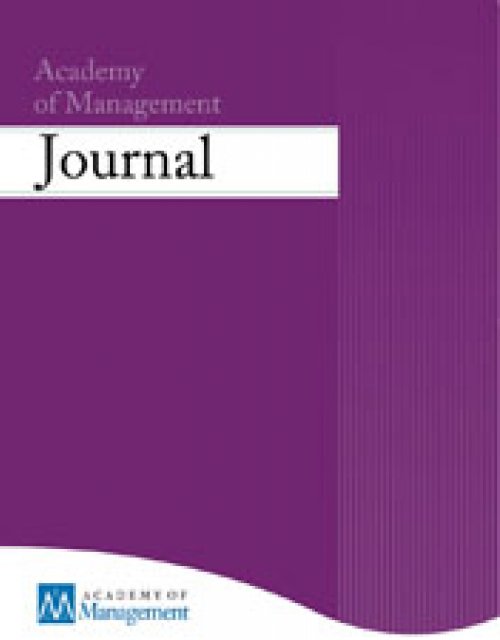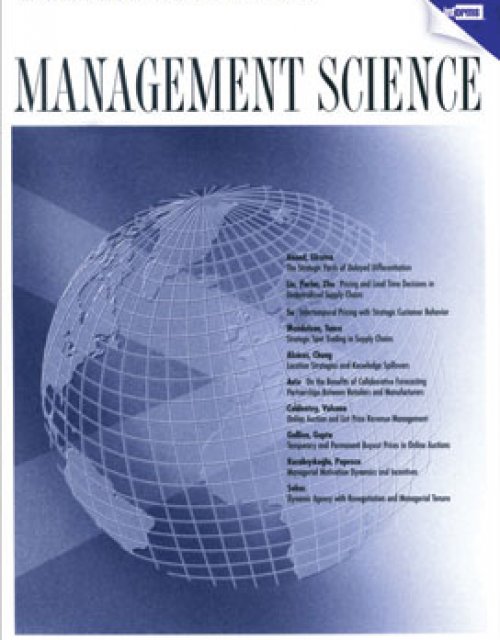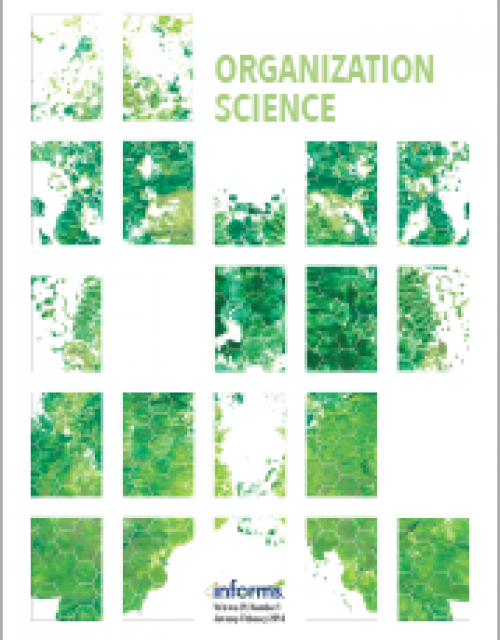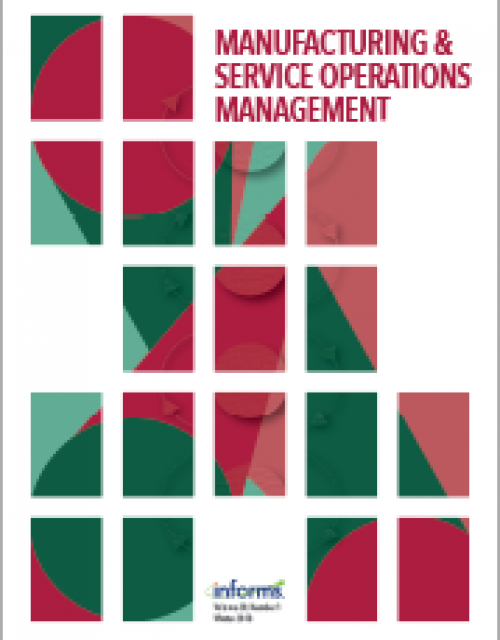Publication records
Subject(s)
Strategy and general management; Technology, R&D management
Keyword(s)
search, external search, ideas, crowdsourcing, co-evolutionary lock-in, attention
While external search allows organizations to source diverse ideas from people outside the organization, it often generates a narrow set of non-diverse ideas. We theorize that this result stems from an interplay between organizations’ selection of ideas and the external generation of ideas: an organization selects ideas shared by external contributors, and the external contributors, who strive to see their ideas selected, use the prior selection as a signal to infer what kind of ideas the organization is looking for. Contributors whose ideas are not aligned with the organization’s selection tend to stop submitting ideas (i.e., self-selection) or adjust the ideas they submit so that they correspond (i.e., self-adjustment), resulting in a less diverse pool of ideas. Our central hypothesis is that the more consistent organizations are in their selection, the stronger the co-evolutionary lock-in: organizations with greater selection consistency receive future ideas with lower content variety. We find support for these predictions by combining large-scale network analysis and natural language processing across a large number of organizations that use crowdsourcing. Our findings suggest a reconceptualization of external search: organizations are not simply passive receivers of ideas but send signals that shape the pool of ideas that externals share.
With permission of the Academy of Management
Volume
67
Journal Pages
262–288
Subject(s)
Management sciences, decision sciences and quantitative methods; Product and operations management; Technology, R&D management
Keyword(s)
Machine-learning, rational inattention, human-machine collaboration, cognitive effort
The rapid adoption of AI technologies by many organizations has recently raised concerns that AI may eventually replace humans in certain tasks. In fact, when used in collaboration, machines can significantly enhance the complementary strengths of humans. Indeed, because of their immense computing power, machines can perform specific tasks with incredible accuracy. In contrast, human decision-makers (DM) are flexible and adaptive but constrained by their limited cognitive capacity. This paper investigates how machine-based predictions may affect the decision process and outcomes of a human DM. We study the impact of these predictions on decision accuracy, the propensity and nature of decision errors as well as the DM's cognitive efforts. To account for both flexibility and limited cognitive capacity, we model the human decision-making process in a rational inattention framework. In this setup, the machine provides the DM with accurate but sometimes incomplete information at no cognitive cost. We fully characterize the impact of machine input on the human decision process in this framework. We show that machine input always improves the overall accuracy of human decisions, but may nonetheless increase the propensity of certain types of errors (such as false positives). The machine can also induce the human to exert more cognitive efforts, even though its input is highly accurate. Interestingly, this happens when the DM is most cognitively constrained, for instance, because of time pressure or multitasking. Synthesizing these results, we pinpoint the decision environments in which human-machine collaboration is likely to be most beneficial.
© 2023, INFORMS
Volume
70
Journal Pages
1258–1275
Subject(s)
Human resources management/organizational behavior
Keyword(s)
structural holes, brokering behaviors, tertius separans, tertius iungens, social networks
Connecting otherwise disconnected individuals and groups - spanning structural holes - can earn social network brokers faster promotions, higher remuneration, and enhanced creativity. Organizations also benefit through improved communication and coordination from these connections between knowledge silos. Neglected in prior research, however, has been theory and evidence concerning the psychological costs to individuals of engaging in brokering activities. We build new theory concerning the extent to which keeping people separated (i.e., tertius separans brokering) relative to bringing people together (i.e., tertius iungens brokering) results in burnout and in abusive behavior toward coworkers. Engagement in tertius separans brokering, relative to tertius iungens brokering, we suggest, burdens people with onerous demands while limiting access to resources necessary to recover. Across three studies, we find that tertius separans leads to abusive behavior of others, mediated by an increased experience of burnout on the part of the broker. First, we conducted a five-month field study of burnout and abusive behavior, with brokering assessed via e-mail exchanges among 1,536 university employees in South America. Second, we examined time-separated data on self-reported brokering behaviors, burnout, and coworker abuse among 242 employees of U.S. organizations. Third, we experimentally investigated the effects of the two types of brokering behaviors on burnout and abusive behavior for 273 employed adults. The results across three studies showed that tertius separans brokering puts the broker at an increased risk of burnout and subsequent abusive behavior toward others in the workplace.
© 2023, INFORMS
Volume
35
Journal Pages
177–194
Subject(s)
Entrepreneurship
Alexander and Lorenzo were at a crossroads with their biotech startup, PhagoMed. They had left high-profile positions at Boston Consulting Group (BCG) three years earlier, driven by a bold vision to tackle the global crisis of antibiotic resistance using phages, viruses with the remarkable ability to target specific bacteria. Despite a robust commitment to R&D yielding deeper insights into phage biology, the journey from lab to clinic was frustratingly slow. And with their capital dwindling, they faced the urgent need to reassess their strategic direction and resource allocation.
NOTE: This case does not have a teaching note and is not available via our distributors. If you are interested in this case, please contact either the author or publications@esmt.org.
Subject(s)
Health and environment; Management sciences, decision sciences and quantitative methods; Product and operations management; Unspecified
Keyword(s)
client engagement, shared service delivery, shared medical appointments, healthcare operations, behavioral operations
Problem Definition: Clients and service providers alike often consider one-on-one service delivery to be ideal, assuming – perhaps unquestioningly – that devoting individualized attention best improves client outcomes. In contrast, in shared service delivery, clients are served in batches and the dynamics of group interaction could lead to increased client engagement – which could improve outcomes. However, the loss of privacy and personal connection might undermine engagement. Practical Relevance: The engagement dynamics in one-on-one and shared delivery models have not been rigorously studied. To the extent that shared delivery may result in comparable or better engagement than one-on-one delivery, service providers in a broad array of contexts may be able to create more value for clients by delivering service in batches. Methodology: We conducted a randomized controlled trial with 1,000 patients who were undergoing glaucoma treatment over a three-year period at a large eye hospital. Using verbatim and behavioral transcripts from over 20,000 minutes of video recorded during our trial, we examine how shared medical appointments (SMAs) – in which patients are served in batches – impact engagement. Results: Patients who experienced SMAs asked 33.33% more questions per minute, made 8.63% more non-question comments per minute, and exhibited higher levels of non-verbal engagement across a wide array of measures (attentiveness, positivity, head wobbling or ‘talai tallattam’ in Tamil – a South Indian gesture to signal agreement or understanding – eye contact and end-of-appointment happiness), relative to patients who attended one-on-one appointments. Managerial Implications: These results shed light on the potential for shared service delivery models to increase client engagement and thus enhance service performance.
© 2023, INFORMS
Volume
26
Journal Pages
154–166
Subject(s)
Economics, politics and business environment; Human resources management/organizational behavior; Management sciences, decision sciences and quantitative methods; Strategy and general management
Keyword(s)
ambidexterity, brokerage, market crises, networks, structural holes
We examine how crisis conditions affect the link between structural holes and organizational performance. Since brokerage offers early access to diverse perspectives and autonomy in exchange relations, the benefits of brokerage should rise when crises erupt. However, evidence on the subject has been inconclusive, raising the question of whether crisis actually imposes a boundary condition on structural hole theory. Using longitudinal data on investment banks, and exploiting the 2000 dot.com crisis as well as the 2008 financial crisis, we explore whether crises moderate the favorable effect of brokerage on performance. Our results reveal that only exclusive, and not shared, structural holes are advantageous for performance, as they facilitate ambidextrous responses to crisis. Implications for brokerage theory and for new research on crisis are discussed.
© 2023 John Wiley & Sons Ltd.
Volume
44
Journal Pages
3122–3154
Subject(s)
Human resources management/organizational behavior
Keyword(s)
error management, psychological safety, automation
Volume
2023
Journal Pages
16–23
Subject(s)
Human resources management/organizational behavior
Keyword(s)
networks, complementarity fit, innovative performance
ISSN (Print)
0017-8012
Subject(s)
Diversity and inclusion; Human resources management/organizational behavior; Management sciences, decision sciences and quantitative methods; Strategy and general management
Keyword(s)
luck, chance models, attribution biases, behavioral strategy, the Carnegie school,
Matthew effect, simulation
Matthew effect, simulation
Volume
14
Journal Pages
1157527
Subject(s)
Finance, accounting and corporate governance
Keyword(s)
accounting quality, inflation, internal information systems, investment
JEL Code(s)
E22, E52, M41
Volume
76
Journal Pages
101632



